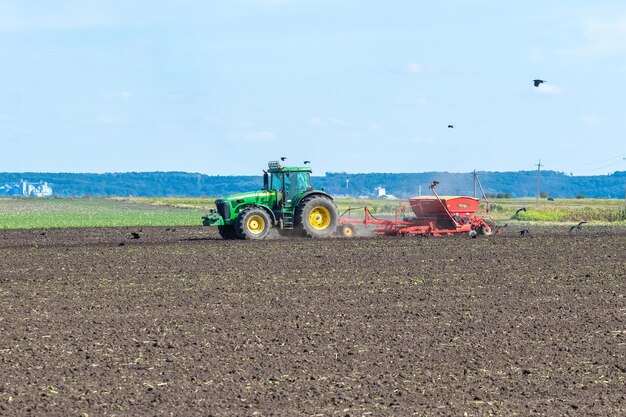Scaling a farming operation is a goal for many farmers, as it allows for increased production, efficiency, and profitability. However, achieving this growth requires adopting tools and technologies that optimize operations and minimize labor. One such essential tool is the seed planter. This article explores how seed planters play a critical role in scaling farming operations and why South African farmers should consider them as a valuable investment.
What Are Seed Planters?
A seed planter is a farming implement designed to plant seeds evenly and efficiently in the soil. Seed planters come in various sizes and types, ranging from small hand-operated devices to large, tractor-mounted machines capable of planting multiple rows simultaneously.
By automating the seed planting process, these machines significantly reduce manual labor and ensure precise planting, which is crucial for crop uniformity and high yields.
The Benefits of Seed Planters
- Increased Planting Efficiency
Manual planting is time-consuming and labor-intensive, especially on larger farms. Seed planters can cover more ground in a shorter time, enabling farmers to plant crops quickly during optimal planting windows.
This efficiency is particularly important in South Africa, where unpredictable weather patterns can shorten the planting season. - Improved Seed Placement Accuracy
A critical factor in achieving high yields is ensuring seeds are planted at the correct depth and spacing. Seed planters are designed to distribute seeds evenly, improving germination rates and reducing competition for nutrients, sunlight, and water.
Precise planting leads to healthier crops and better overall farm productivity. - Cost Reduction
While the initial investment in a seed planter may seem significant, it reduces long-term costs by minimizing the need for manual labor and improving resource efficiency. For example, proper seed placement reduces the need for replanting and optimizes the use of fertilizers and water. - Scalability
For farmers looking to expand their operations, seed planters make it feasible to manage larger plots of land without a proportional increase in labor costs. Tractor-mounted planters, for example, can plant several rows at once, making them ideal for commercial farming. - Consistency Across Large Areas
Achieving uniformity across large tracts of land can be challenging with manual planting. Seed planters ensure consistent seed distribution, leading to even crop growth and simplifying tasks such as irrigation and pest control. - Versatility
Modern seed planters are often adjustable and can handle different seed types and planting patterns. This versatility is particularly beneficial for South African farmers who grow a variety of crops, from maize and soybeans to sunflower and sorghum.
Choosing the Right Seed Planter for Your Farm
When selecting a seed planter, it’s important to consider your farm’s specific needs, including the size of your operation, the type of crops you grow, and your budget.
- Size of the Planter
Smaller farms may benefit from single-row or manual seed planters, while larger commercial farms should invest in multi-row or tractor-mounted machines for maximum efficiency. - Crop Compatibility
Choose a planter that is compatible with the type of seeds you use. Some planters are designed for specific crops, while others are adjustable for various seed types. - Precision Technology
Modern seed planters often come with advanced features such as GPS guidance, variable rate seeding, and real-time monitoring. While these technologies may increase upfront costs, they provide long-term benefits in precision and efficiency. - Durability and Maintenance
Invest in a high-quality planter built to withstand South Africa’s diverse farming conditions. Regular maintenance is also essential to ensure the longevity and performance of the equipment.
The Role of Seed Planters in Sustainable Farming
Seed planters not only help scale farming operations but also contribute to sustainability. Precise seed placement reduces waste, optimizes resource use, and minimizes environmental impact. Additionally, modern planters designed for no-till or conservation agriculture systems help preserve soil health and reduce erosion.
As South African farmers face increasing pressure to balance productivity with environmental stewardship, seed planters offer a practical solution to achieving both goals.
Scaling your farming operation requires investing in tools and technologies that increase efficiency, productivity, and profitability. Seed planters are a game-changer in this regard, offering numerous benefits, from improved seed placement and reduced labor costs to increased scalability and sustainability.
For South African farmers looking to grow their operations, a seed planter is more than just a piece of equipment—it’s an investment in the future of your farm. By choosing the right planter and integrating it into your farming practices, you can optimize your planting process, boost yields, and set the foundation for long-term success.
Join 'Farmers Mag' WhatsApp Channel
Get the latest Farming news and tips delivered straight to your WhatsApp
CLICK HERE TO JOIN






